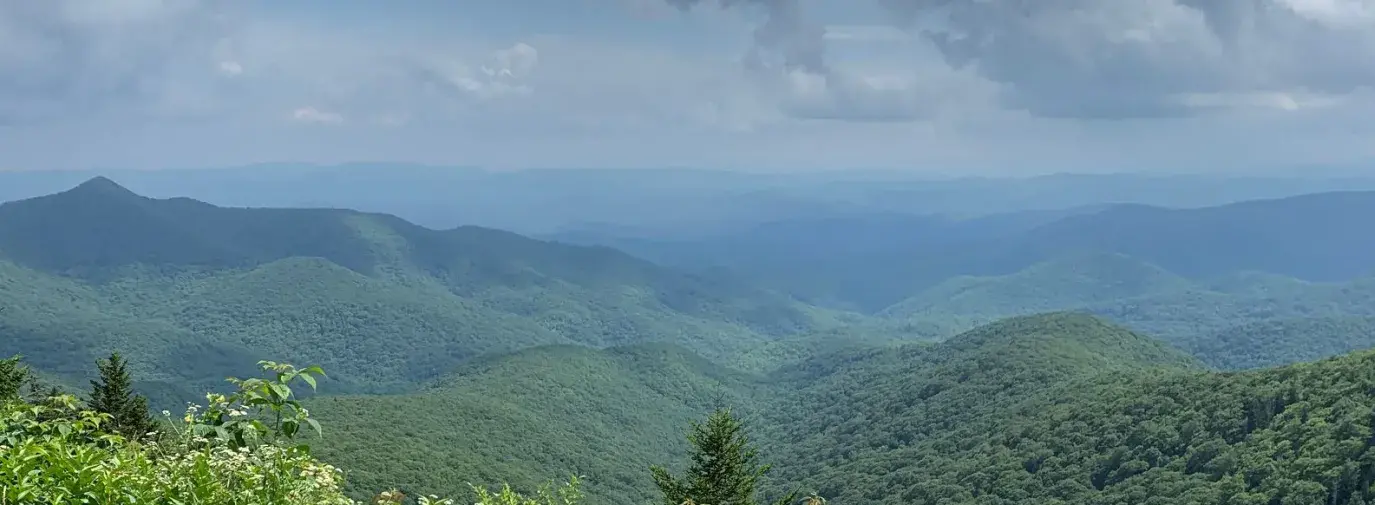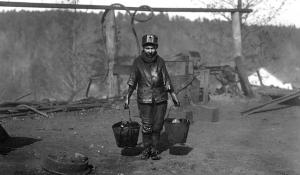
The mountains of Asheville, North Carolina, were my first love. Rushing rivers and the whisper of the wind through the trees taught me from an early age that my peace and clarity are found in the quiet corners of the Earth. In a world consumed by noise, screens, and schedules, the outdoors is my escape—an antidote to the frantic pace of modern life.
I’ve always been conscious of my impact on the world around me. Supporting sustainability is as natural to me as breathing. But since Hurricane Helene devastated my hometown and my country elected a president who opposes climate action, it feels like the air is being squeezed from my lungs. Our political landscape has torn up my roots, violent and unforgiving, ripping away the comfort Appalachia has given me so freely. Our Earth is suffering, and we can no longer ignore the way nature, the way so many of us, are being pushed to the brink.
Just as the land has been bled dry by the demands of progress, so too have women been expected to bend, to give, to carry the weight of a system that takes and takes without regard for what it costs. My existence as a woman is tinged with grief, knowing that we, like the Earth, are too often ignored until we are broken. To me, advocacy is not just about fighting for a cleaner planet or a more equal society; it is about reimagining what it means to care for both people and nature.
Hurricane Helene battered Western North Carolina and surrounding areas in the southeastern U.S., and marginalized communities of immigrants, BIPOC, LGBTQIA+ folks, and disabled people have long been battered by systems built to silence them for the comfort and profit of the privileged. Just as hurricane victims should not be left to rebuild their communities alone, marginalized groups should not solely bear the responsibility for dismantling oppressive systems. True justice is achieved when we use the power and privilege we have for the collective good. If western North Carolina can come together to repair roads and roofs, we can come together to create lasting change. If we are to protect the Earth, we must protect each other. We must recognize that our fates are intertwined, that when one of us falls, we all feel it. Our collective strength is what will carry us forward—whether we are fighting to preserve the land we love or to ensure that silenced voices are finally heard. Mother Nature is strong, resilient, and empathetic. She cannot be used and discarded; and neither can we.
The winds of change are not so different from the winds of a storm. They are powerful, relentless, and they shape everything they touch. But if we can listen closely enough, perhaps we can learn to move with them, not against them, and find a way for the Earth, for all of us, to rise, unbroken and free—together.







